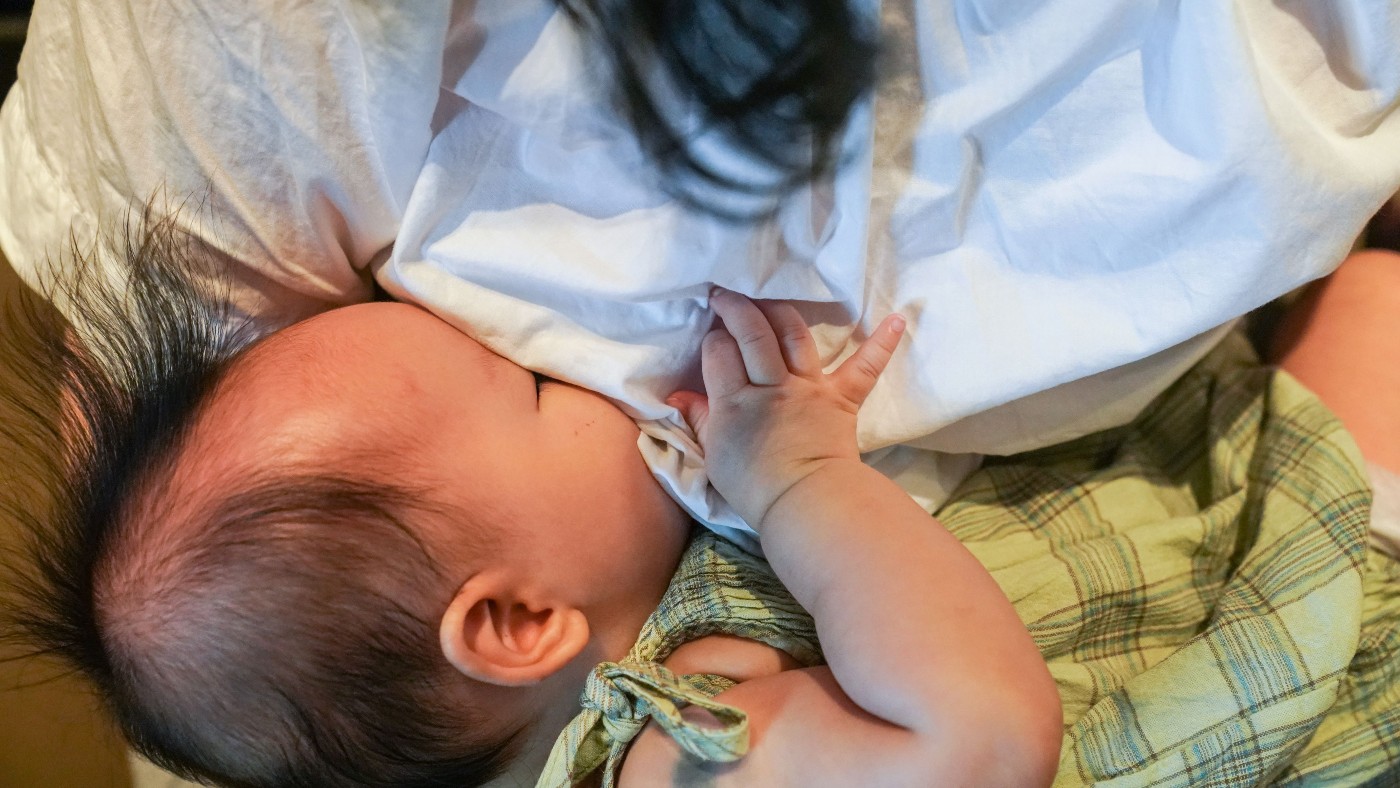Could breast milk help stop the spread of coronavirus?
Chinese researchers say whey protein from human breast milk appears to halt viral replication

A free daily email with the biggest news stories of the day – and the best features from TheWeek.com
You are now subscribed
Your newsletter sign-up was successful
Human breast milk may help to prevent or treat the novel coronavirus, according to a new study.
The researchers, from the Beijing University of Chemical Technology, say that whey proteins in breast milk can inhibit Sars-CoV-2, which causes Covid-19, by “blocking viral attachment, entry and even post-entry viral replication”.
And whey proteins in cow and goat milk may offer a similar, though less effective, protection. The Chinese team found that “cow and goat whey proteins could suppress the coronavirus by about 70%, but the efficacy of human whey was far more impressive at 98%”, The Times reports.
The Week
Escape your echo chamber. Get the facts behind the news, plus analysis from multiple perspectives.

Sign up for The Week's Free Newsletters
From our morning news briefing to a weekly Good News Newsletter, get the best of The Week delivered directly to your inbox.
From our morning news briefing to a weekly Good News Newsletter, get the best of The Week delivered directly to your inbox.
The findings, published on pre-print specialist site biorxiv.org, have not yet been peer-reviewed. But the results appear to support the recommendation by the World Health Organization (WHO) that mothers infected with the coronavirus should continue breastfeeding their babies.
For the study, the researchers exposed cells from the human gut and lungs to Sars-CoV-2. They then looked at what effect breast milk that had been collected in 2017 - prior to the pandemic - had on the cells.
The team “observed almost no viral binding or entry to these healthy cells, as well as the halting of viral replication in already-infected cells”, The Times reports.
“Human milk was able to eliminate the virus in a broader range of cell types” than animal milk, “but the researchers said it was unclear what had caused the difference”, adds the South China Morning Post.
A free daily email with the biggest news stories of the day – and the best features from TheWeek.com
In a further note of reassurance for mothers, a recent US study outlined in a paper in the Journal of the American Medical Association found that breast milk does not spread the coronavirus and “may not be a source of infection for the infant”.
Researchers are now investigating whether breast milk could be used as a treatment for Covid-19.
Arion McNicoll is a freelance writer at The Week Digital and was previously the UK website’s editor. He has also held senior editorial roles at CNN, The Times and The Sunday Times. Along with his writing work, he co-hosts “Today in History with The Retrospectors”, Rethink Audio’s flagship daily podcast, and is a regular panellist (and occasional stand-in host) on “The Week Unwrapped”. He is also a judge for The Publisher Podcast Awards.
-
 The Olympic timekeepers keeping the Games on track
The Olympic timekeepers keeping the Games on trackUnder the Radar Swiss watchmaking giant Omega has been at the finish line of every Olympic Games for nearly 100 years
-
 Will increasing tensions with Iran boil over into war?
Will increasing tensions with Iran boil over into war?Today’s Big Question President Donald Trump has recently been threatening the country
-
 Corruption: The spy sheikh and the president
Corruption: The spy sheikh and the presidentFeature Trump is at the center of another scandal
-
 A Nipah virus outbreak in India has brought back Covid-era surveillance
A Nipah virus outbreak in India has brought back Covid-era surveillanceUnder the radar The disease can spread through animals and humans
-
 Covid-19 mRNA vaccines could help fight cancer
Covid-19 mRNA vaccines could help fight cancerUnder the radar They boost the immune system
-
 The new Stratus Covid strain – and why it’s on the rise
The new Stratus Covid strain – and why it’s on the riseThe Explainer ‘No evidence’ new variant is more dangerous or that vaccines won’t work against it, say UK health experts
-
 RFK Jr. vaccine panel advises restricting MMRV shot
RFK Jr. vaccine panel advises restricting MMRV shotSpeed Read The committee voted to restrict access to a childhood vaccine against chickenpox
-
 RFK Jr. scraps Covid shots for pregnant women, kids
RFK Jr. scraps Covid shots for pregnant women, kidsSpeed Read The Health Secretary announced a policy change without informing CDC officials
-
 New FDA chiefs limit Covid-19 shots to elderly, sick
New FDA chiefs limit Covid-19 shots to elderly, sickspeed read The FDA set stricter approval standards for booster shots
-
 RFK Jr.: A new plan for sabotaging vaccines
RFK Jr.: A new plan for sabotaging vaccinesFeature The Health Secretary announced changes to vaccine testing and asks Americans to 'do your own research'
-
 Five years on: How Covid changed everything
Five years on: How Covid changed everythingFeature We seem to have collectively forgotten Covid’s horrors, but they have completely reshaped politics